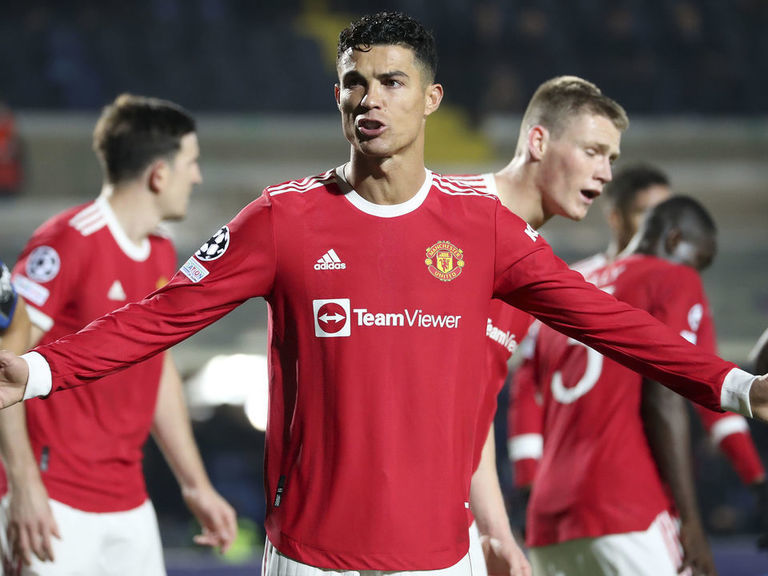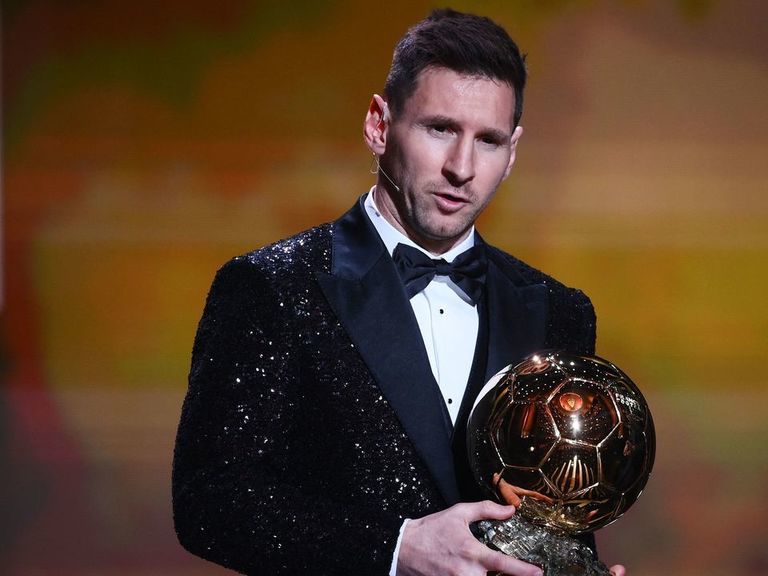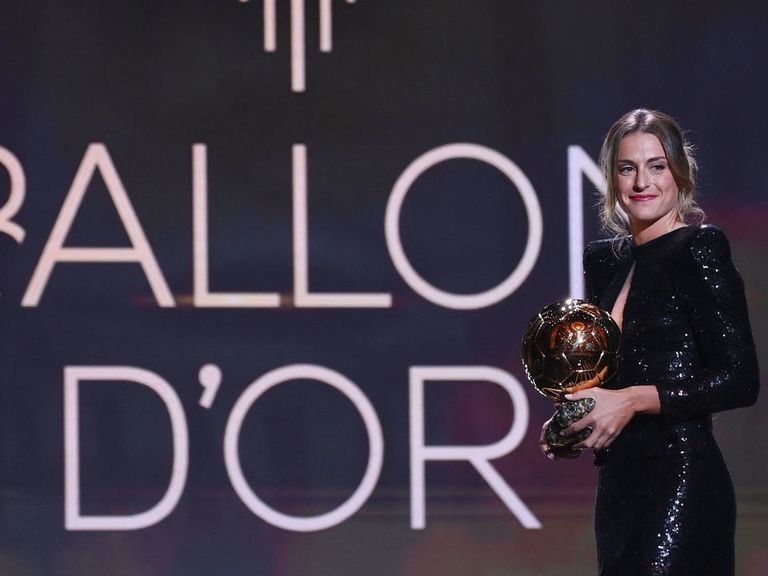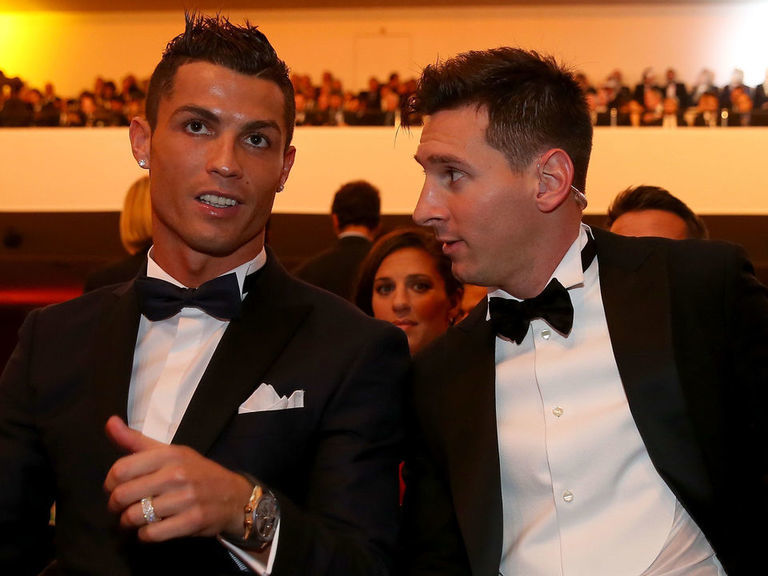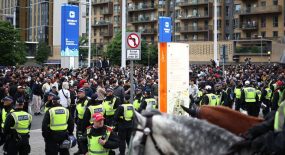Lionel Messi edged out Robert Lewandowski to claim a record-extending seventh Ballon d’Or on Monday, ending a bittersweet year on a high after he left Barcelona and won the Copa America in the summer.
Lewandowski settled for second place despite breaking Gerd Muller’s long-standing single-season Bundesliga scoring record with 41 goals in 2020-21.
Jorginho, an early favorite for the Ballon d’Or after playing every minute of Italy’s Euro 2020-winning campaign, ranked third.
Cristiano Ronaldo, who was absent from Monday’s ceremony, finished in sixth. It’s the first time he’s finished outside the top three since 2010 when he also dropped to sixth place.
Italian goalkeeper Gianluigi Donnarumma, who was named the best player at Euro 2020, rounded out the top 10.
Simon Kjaer, whose life-saving measures helped Christian Eriksen recover from cardiac arrest at the summer tournament, finished in 18th place, while Pedri, who won the Kopa Trophy as the world’s best player under the age of 21, ended up in 24th.
| Rank | Player | Club | Country | Voting Points |
|---|---|---|---|---|
| 1 | Lionel Messi | Paris Saint-Germain | Argentina | 613 |
| 2 | Robert Lewandowski | Bayern Munich | Poland | 580 |
| 3 | Jorginho | Chelsea | Italy | 460 |
| 4 | Karim Benzema | Real Madrid | France | 239 |
| 5 | N’Golo Kante | Chelsea | France | 186 |
| 6 | Cristiano Ronaldo | Manchester United | Portugal | 178 |
| 7 | Mohamed Salah | Liverpool | Egypt | 121 |
| 8 | Kevin De Bruyne | Manchester City | Belgium | 73 |
| 9 | Kylian Mbappe | Paris Saint-Germain | France | 58 |
| 10 | Gianluigi Donnarumma* | Paris Saint-Germain | Italy | 36 |
| 11 | Erling Haaland | Borussia Dortmund | Norway | 33 |
| 12 | Romelu Lukaku | Chelsea | Belgium | 26 |
| 13 | Giorgio Chiellini | Juventus | Italy | 26 |
| 14 | Leonardo Bonucci | Juventus | Italy | 18 |
| 15 | Raheem Sterling | Manchester City | England | 10 |
| 16 | Neymar | Paris Saint-Germain | Brazil | 9 |
| 17 | Luis Suarez | Atletico Madrid | Uruguay | 8 |
| 18 | Simon Kjaer | AC Milan | Denmark | 8 |
| 19 | Mason Mount | Chelsea | England | 7 |
| 20 | Riyad Mahrez | Manchester City | Algeria | 7 |
| T21 | Bruno Fernandes | Manchester United | Portugal | 6 |
| T21 | Lautaro Martinez | Inter Milan | Argentina | 6 |
| 23 | Harry Kane | Tottenham | England | 4 |
| 24 | Pedri** | Barcelona | Spain | 3 |
| 25 | Phil Foden | Manchester City | England | 2 |
| T26 | Gerard Moreno | Villarreal | Spain | 1 |
| T26 | Ruben Dias | Manchester City | Portugal | 1 |
| T26 | Nicolo Barella | Inter Milan | Italy | 1 |
| T29 | Luka Modric | Real Madrid | Croatia | 0 |
| T29 | Cesar Azpilicueta | Chelsea | Spain | 0 |
Messi scored 38 goals in all competitions for Barcelona last season and helped the club win the Copa del Rey – its first title since the 2018-19 season – before leaving for Paris Saint-Germain. He also achieved one of his dreams in July when he lifted the Copa America, his first major triumph with Argentina’s national team.
*Won the Yashin Trophy as the world’s top goalkeeper
**Won the Kopa Trophy as the world’s best under-21 player








